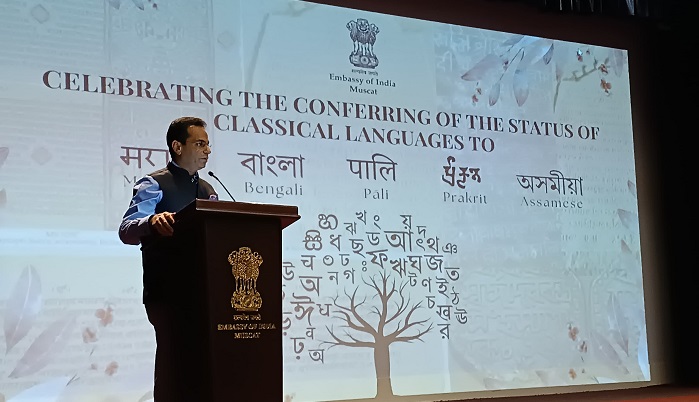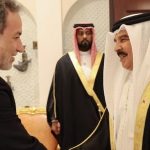The Embassy of India in Muscat recently celebrated the recognition of Marathi, Bengali, Assamese, Pali, and Prakrit as Classical Languages by the Government of India. This special event honored the rich linguistic and cultural heritage of these languages, highlighting their significant contributions to India’s literary, historical, and intellectual traditions. H.E. Amit Narang, Ambassador of India to the Sultanate of Oman, praised the decision, stating that it is a proud moment for every Indian as it acknowledges the immense importance of these languages to India’s heritage.
The event showcased various cultural performances by the Marathi, Bengali, and Assamese communities of the Indian diaspora in Oman. Through traditional dances, music, and artistic displays, each community demonstrated the richness of their linguistic and cultural heritage, offering a vibrant celebration of their unique identities. Representatives from these communities expressed their gratitude to the Government of India for recognizing their languages as Classical, emphasizing how this acknowledgment strengthens their cultural pride and highlights the importance of preserving their linguistic heritage.
Additionally, representatives from the Marathi, Bengali, and Assamese communities presented letters of appreciation to the Ambassador, addressed to the Hon’ble Prime Minister of India, to acknowledge the government’s efforts in promoting cultural and linguistic diversity. The event highlighted the strong cultural ties between India and Oman, reaffirming the role of the diverse Indian community in Oman in maintaining their cultural identity abroad. The celebration was a testament to the unity and solidarity of the Indian diaspora in Oman, as they came together to honor and showcase the richness of their linguistic and cultural heritage.
The conferral of Classical Language Status on Marathi, Bengali, Assamese, Pali, and Prakrit is a significant milestone that recognizes the enduring importance of these languages in India’s cultural landscape. This recognition not only celebrates the languages themselves but also pays homage to the people, literature, and traditions that have been nurtured and preserved over centuries. The event in Muscat served as a platform for the Indian community in Oman to come together and showcase their cultural pride and heritage through various performances and displays, fostering a sense of unity and camaraderie among the participants.
The celebration in Muscat not only highlighted the significance of the newly recognized Classical Languages but also underscored the importance of cultural preservation and heritage. The event served as a reminder of the rich and diverse linguistic tapestry that exists within India and the need to protect and promote these languages for future generations. By acknowledging and honoring Marathi, Bengali, Assamese, Pali, and Prakrit as Classical Languages, the Government of India has taken a step towards preserving and celebrating the unique cultural identities that these languages represent.
In conclusion, the event at the Embassy of India in Muscat was a symbolic celebration of the linguistic and cultural heritage of Marathi, Bengali, Assamese, Pali, and Prakrit. Through vibrant cultural performances and expressions of gratitude, the Indian community in Oman came together to honor and showcase the richness of their linguistic diversity and heritage. The recognition of these languages as Classical is a testament to their enduring importance in India’s cultural legacy and a call to action to preserve and promote these languages for future generations.











